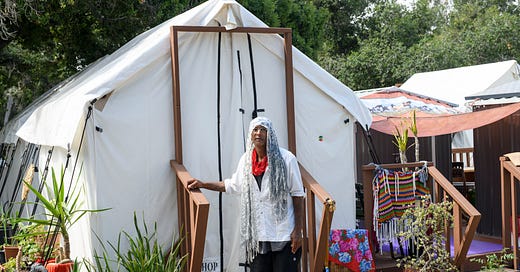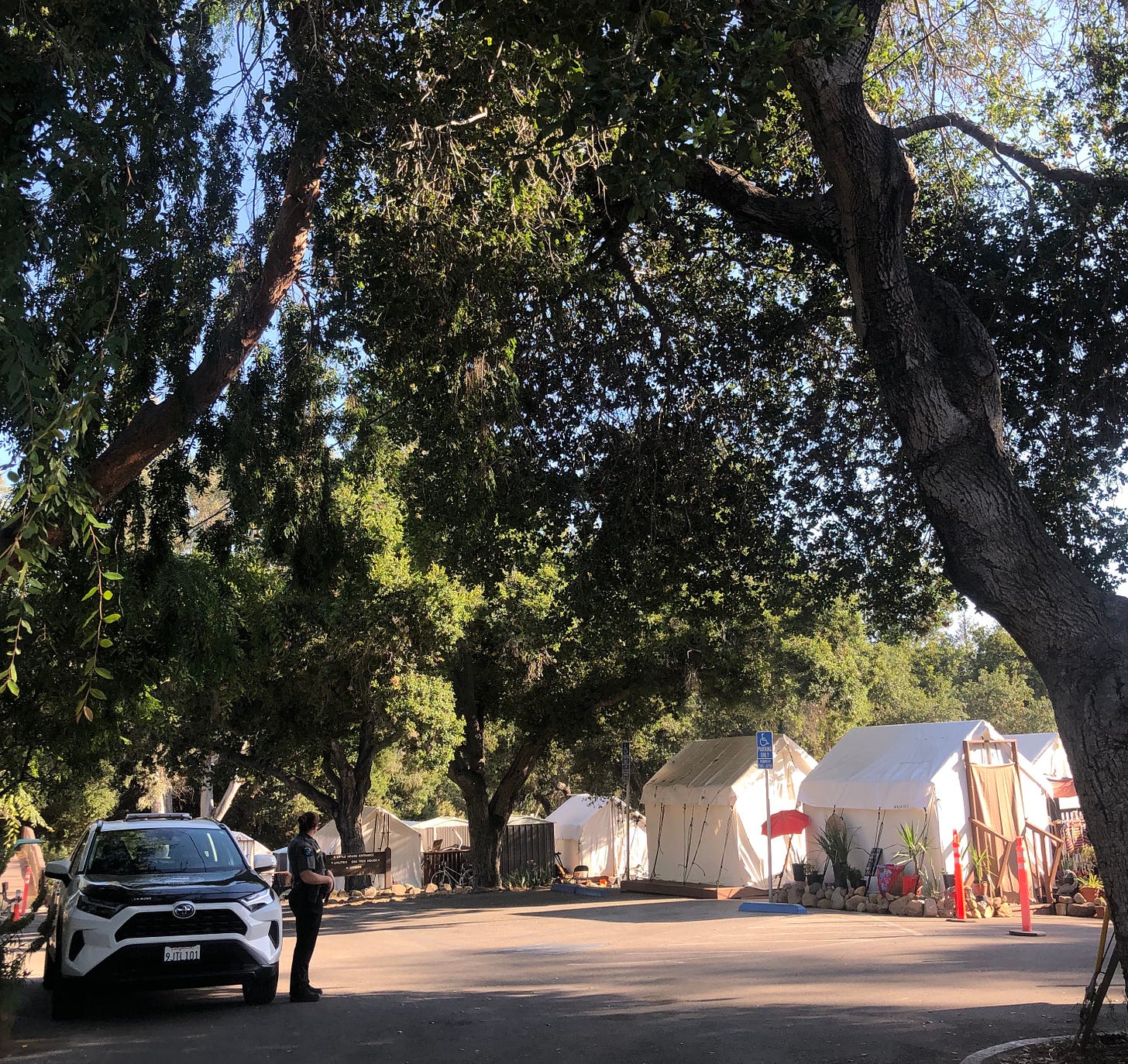Ojai's Tent Town: New Residents, Evictions, A SCOTUS Decision, And the Big Question: Where Will They Go Next?
Plus: new interviews with camp residents and City Hall neighbors.
Greetings Readers! The following is the fourth in an ongoing series of reports about housing and homelessness in Ojai.
I've come to appreciate that every story I write in this space — from the Ojai Unified School District's financial situation to discord on the Ojai City Council, even the future of agriculture in the Ojai Valley — is tied up in a singular issue: housing.
As always, subscribing, donating, and sharing are the best ways to support this work. If you, a friend, or a family member would like a free trial subscription, please send a note to andra.belknap@gmail.com.
Thank you in advance for spending time with me — let’s get into it.
Ojai’s Tent Town: New Residents, Evictions, a SCOTUS Decision, And the Big Question: Where Will They Go Next?
"I had a very rough life growing up. I lived in homeless shelters as a child… My mom unfortunately has mental health issues, so that kind of goes hand in hand [with homelessness], as we know."
Shari Henderson is one of a few new faces at Ojai City Hall's homeless encampment. But she's not a resident.
She's a security guard. Henderson just happens to have grown up homeless in Southern California — a stark reminder of the scale of the housing crisis.
As of June 21st, Ojai City Hall's 38-resident1 tent camp has dedicated security services every day from 4 pm to 7 am. Secural Security Corporation, a private security firm based in Calabasas, charges the City an hourly rate ranging from $50 to $70. Their services will be funded by the City's 12.7 million Encampment Resolution Fund (ERF) grant — 50% of which must be spent by June of 2025. The grant is intended to provide permanent supportive housing for chronically homeless Ojai residents — it also funds private security and and social services for a two year period.
(I'll note that the City hasn't actually received the $12.7 million yet, according to City Manager Ben Harvey, but he expects to receive the funds by the end of July. The plan is to use the grant funding to reimburse the City for camp-related expenditures.)
According to Henderson, Secural's primary role at the camp is to prevent "outsiders" from coming in. Harvey said the camp is full and closed to new residents. Henderson and her colleagues generally remain stationed at the camp's entrance.
"If I hear any kind of disruptions or anything, then [I] take a walk around," she said. Henderson continued, "Or if somebody calls me or needs something, then obviously we'll respond to that situation. But outside of that, we're pretty much here to kind of keep an eye on the front and then assist if anything's needed."
All City Hall campers have Secural's dispatch number — if needed, they can contact security without leaving their tents.
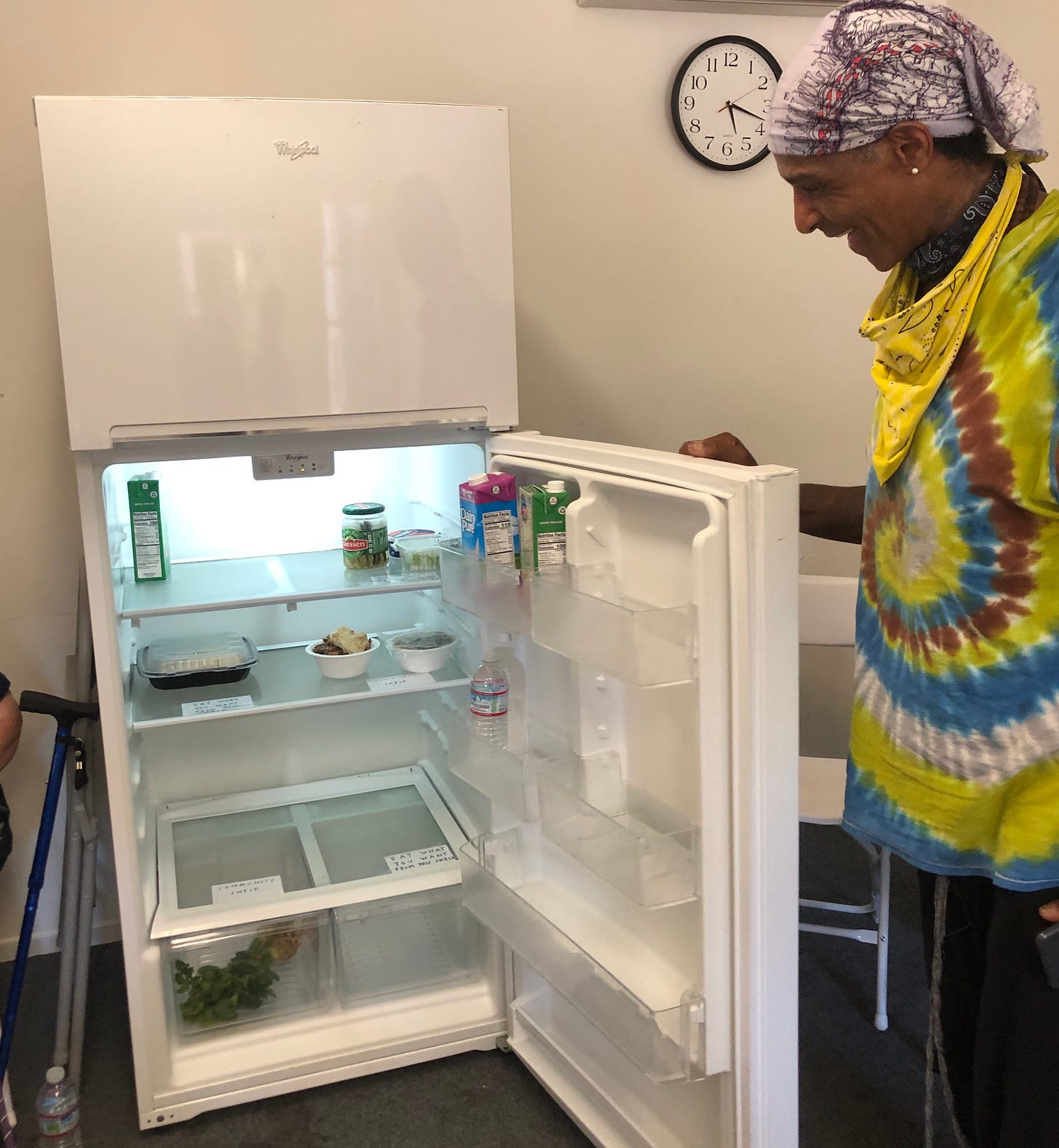
Another new face on the Kent Hall campus belongs to Amy Farah Weiss, a housing advocate who, until recently, was based in New Mexico. She worked with the City of Santa Fe to assess and address its own challenges with homelessness.
Weiss was formally summoned to Ojai during the June 11th City Council meeting. (This was the session we discussed in my June 22nd update — when the Council voted unanimously to purchase a parcel at the corner of Ojai Ave. and Bald Street to house Ojai's state-funded permanent supportive housing project for homeless community members. The proposed purchase went up in flames shortly thereafter.)
Anyways, before the Council authorized the doomed real estate deal, Ojai City Manager Ben Harvey introduced Weiss as someone who would be critical to the success of the camp's (then-theoretical) move to the Ojai Ave. property. Here's how Harvey presented Weiss to the community on June 11th (she attended via Zoom):
"We really need to prepare our population in the unhoused encampment to be ready to move to a Tiny Homes Pathway to Permanent Housing Project.2 And to do that we need some type of order, a model, a process. I was introduced to Amy Weiss and the St. Francis Challenge (Weiss' non-profit program) through Dignity Moves." (Dignity Moves is the ERF-funded housing developer). Harvey continued, "Amy does this work across the country. She goes into unhoused encampments and she implements what's referred to as a 'resident steward model.'" (We'll discuss the "resident steward model" in a moment.)
Weiss' contract was approved unanimously by the Council on June 11th, though former Ojai City Councilman Bill Weirick3 offered criticism, observing that Weiss' contract — and the way it was presented — was evidence of a larger problem:
"Obviously [Weiss's] was an excellent presentation. But you've heard no other presentation. You've heard about no other models… I think the problem is that this Council has been faced with reactive, binary choices as opposed to thinking ahead and being able to go through the processes that you normally see: RFPs (Request for Proposals), weighing different alternatives, [and] choosing the best. You're basically saying, 'We gotta go with this, or we'll have nothing.' And that's unfortunate."
Weiss arrived at the camp on July 1, where she lives in a small, clam-shell-style trailer she calls "Sam the Clam." Weiss shares some of Sam's functionality with the rest of the camp: she allows campers to use the trailer's shower and shares her small kitchen with those who want to cook. The camp recently adopted a new name under Weiss' leadership: Ojai Tent Town.
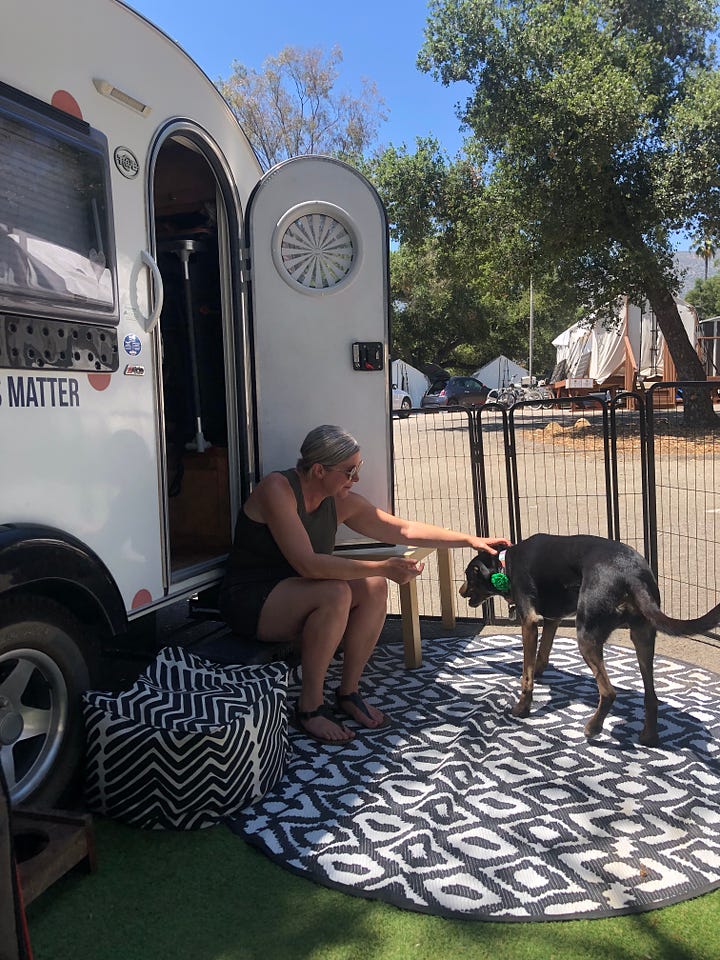
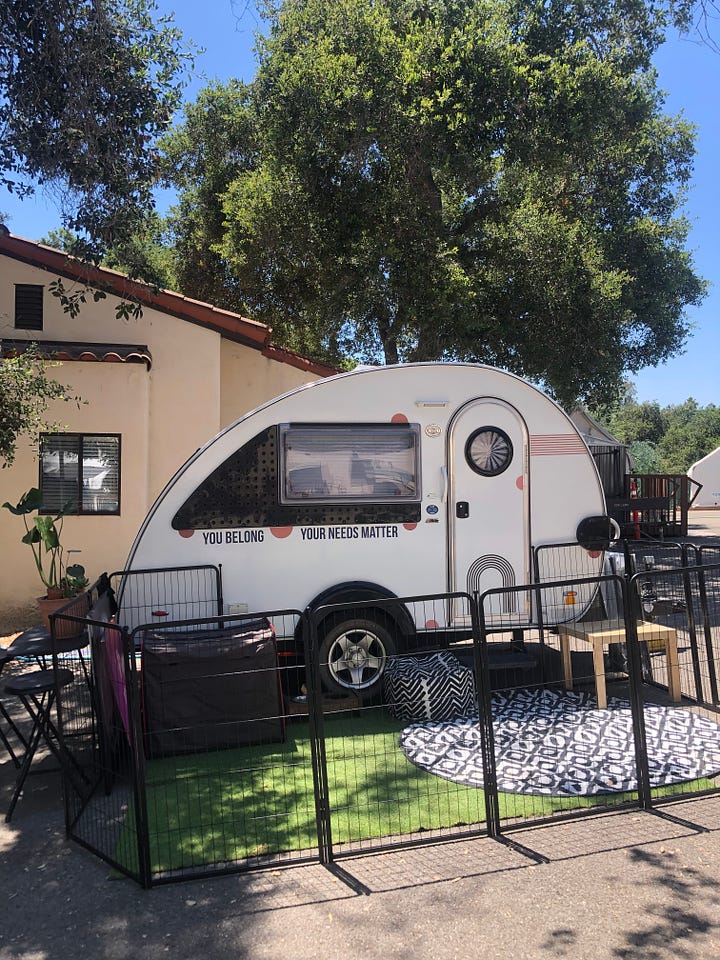
Weiss works in partnership with Ojai Homeless Services Coordinator Rick Raine. Raine, a former Ojai Valley Family Shelter administrator, has worked as a site manager for the City Hall camp since late 2023. Raine is a consistent presence on weekdays from 7 am to 4 pm. Up until Secural's arrival, however, the camp had little supervision overnight.
Keep reading with a 7-day free trial
Subscribe to Local Hero to keep reading this post and get 7 days of free access to the full post archives.
